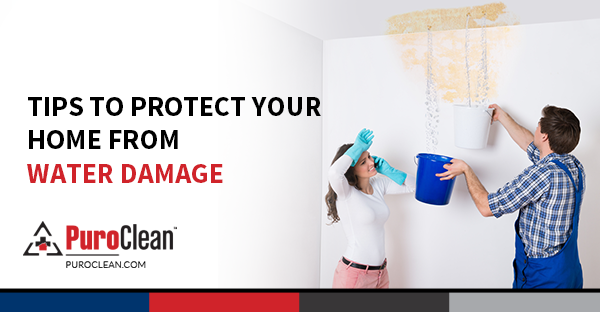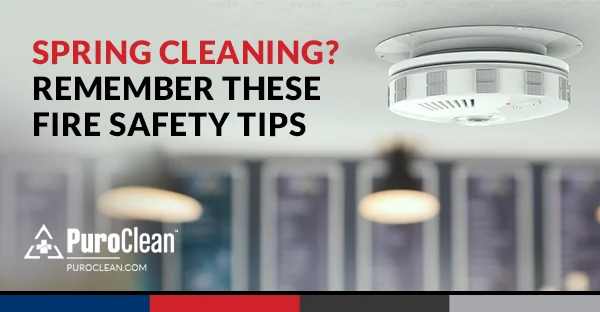Water damage in Greer, SC can be costly and stressful, often catching homeowners by surprise. What may start as a minor leak or overflow can quickly lead to mold growth, structural issues, and extensive repairs. Knowing the signs of water damage early can save you from extensive repairs. These ten must-know water damage prevention tips will guide you in keeping your home protected and your repair costs down.
Keep Gutters Clear and Functional
Clogged gutters can overflow, leading to water damage on your roof and around your foundation. Leaves, dirt, and debris can quickly build up in gutters, causing blockages that prevent water from draining away from your home. Make it a habit to clean out your gutters regularly, especially in the fall, when leaves are abundant. Installing gutter guards can also help keep debris out and ensure smooth water flow all year long.
Install Leak Detectors for Early Alerts
Leak detectors are a smart addition to any home. These devices offer an early warning when water is detected, allowing you to address small leaks before they become major issues. Install leak detectors in high-risk areas like under sinks, around water heaters, in basements, and near appliances prone to leaking, such as washing machines and dishwashers.
Inspect and Maintain Your Roof
Your roof is your first line of defense against water damage, so it’s essential to keep it in good condition. Routine inspections help you catch small problems, like damaged or missing shingles, before they turn into serious leaks. Schedule annual roof inspections, especially after a storm, to identify and fix any issues. Replace damaged shingles promptly to prevent water from seeping in and causing further damage.
Tackle Leaks Immediately
Delaying repairs on a small leak might seem harmless, but over time, even a tiny drip can lead to major structural damage, mold growth, and rot. Regularly inspect plumbing throughout your home, especially around sinks, toilets, and in basements. If you notice any leaks, fix them immediately to avoid larger problems.
Maintain Household Appliances
Appliances like washing machines, dishwashers, and refrigerators can develop leaks as they age. Regular maintenance ensures that connections are secure and hoses are in good shape. Check hoses and connections on appliances regularly, looking for any cracks, rust, or signs of wear. Replace old hoses and worn-out parts to keep your appliances running smoothly and prevent water leaks.
Monitor and Regulate Water Pressure
Excessively high water pressure can stress pipes, increasing the risk of leaks or even pipe bursts. Keeping water pressure within a safe range helps protect your plumbing system. Use a water pressure gauge to monitor your home’s water pressure and install a pressure regulator if needed. Aim to keep water pressure between 40 and 60 psi to reduce strain on your pipes.
Inspect and Replace Aging Pipes to Prevent Water Damage
Older pipes are more prone to leaks and bursts, increasing the risk of water damage. Regular inspections and timely replacements are key to avoiding costly repairs. Here’s how to keep your pipes in shape:
- Look for Rust or Corrosion: Discoloration or rust on pipes can signal deterioration.
- Listen for Odd Noises: Gurgling or clanging sounds might indicate water flow issues.
- Check Connections: Inspect joints, as they often leak first.
- Upgrade Outdated Materials: Replace galvanized steel or other old materials with newer options like copper.
- Schedule Professional Inspections: Older plumbing benefits from regular professional water damage assessments to catch issues early.
Install and Test Your Sump Pump to Keep Your Basement Dry
If you live in a flood-prone area, a sump pump is essential for preventing basement flooding during heavy rains. A functioning sump pump helps direct water away from your home, protecting your foundation and belongings.
Install a Sump Pump
If you don’t already have a sump pump, installing one can make a huge difference in keeping your basement dry. It’s a small investment that provides big protection against water intrusion.
Regular Testing and Backup Power
Test your sump pump regularly to ensure it’s in working order, especially before the rainy season. A backup battery can keep your pump running during power outages, offering peace of mind during storms.
Identifying and understanding what causes water damage in your home can help you take preventive actions to protect your property.
Shut Off the Water When You’re Away
If you’re going on vacation or plan to be away for an extended period, shutting off your home’s main water supply can prevent accidental leaks from causing damage while you’re not around. For added protection, install an automatic shut-off valve that can detect leaks and turn off your water supply even when you’re not home.
Perform Regular Home Inspections
Routine inspections around the house can catch potential issues before they become costly problems. Key areas to inspect include your roof, plumbing, basement, and appliances. Create a home inspection checklist to remind you to inspect each area regularly. You can also consider hiring a professional inspector annually to catch any issues you might miss.
Stay Ahead of Water Damage
Preventing water damage requires regular maintenance and attention to the vulnerable areas in your home. By following these tips, you’re investing in the longevity of your home and reducing the risk of facing costly repairs. Don’t let water damage catch you off guard – protect your home today!
Contact PuroClean of Greer: Your Local Water Damage Experts
Water damage can still happen, even with the best precautions. When you need expert help, contact PuroClean of Greer at (864) 523-6633 or fill out an online form on our website. Our team is ready to assist with professional water damage restoration services and give your home the care it deserves.




 PuroClean of Greer
PuroClean of Greer